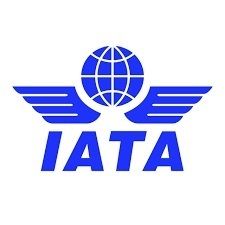International Air Transport Association to launch SAF registry

June 4, 2024
BY International Air Transport Association
The International Air Transport Association announced that it will establish the SAF Registry to accelerate the uptake of sustainable aviation fuels (SAF) by authoritatively accounting and reporting emissions reductions from SAF.
Seventeen airlines, one airline group, six national authorities, three original equipment manufacturers (OEMs), and one fuel producer are already supporting the effort to develop the Registry. The registry is expected to launch in the first quarter of 2025.
SAF is expected to account for up to 65% of the total carbon mitigation needed to achieve net zero carbon emissions in air transportation by 2050.
Advertisement
Advertisement
“SAF is key to aviation’s decarbonization. Airlines want more SAF and stand ready to use every drop of it. The SAF Registry will help meet the critical needs of all stakeholders as part of the global effort to ramp-up SAF production. Governments need a trusted system to track the quality and quantities of SAF used. SAF producers need to accurately account for what has been delivered and effectively decarbonized. Corporate customers must be able to transparently account for their Scope 3 emissions. And airlines must have certainty that they can claim the environmental benefits of the SAF they purchased. The Registry will meet all these needs. In doing so, the Registry will help create a global SAF market by ensuring that airlines have access to SAF wherever it is produced, and that SAF producers have access to airlines regardless of their location,” said Willie Walsh, IATA’s director general.
Capabilities
- Wide Geographic Scope: The registry will allow airlines to purchase SAF regardless of where it is produced. Each batch’s certified environmental attributes can be tracked and assigned to the purchasing airline. By ensuring that the environmental attributes of SAF are properly recorded and transferred between parties, airlines and their customers can report emissions reductions accurately, aligning with any reporting obligations and international standards.
- Broad Application and Neutrality: The registry will be neutral with respect to regulations, types of SAF, and any other specificities under relevant jurisdictions and frameworks, making it capable of handling all such user requirements. As the initiator, IATA is working with certification organizations and fuel producers to standardize data for efficient processing.
- Regulatory Compliance: The registry will help airlines meet regulations such as the Carbon Offsetting Reduction Scheme for International Aviation (CORSIA) and the EU Emissions Trading Scheme, ensuring compliance with SAF mandates and providing transparency to authorities regarding emissions reductions.
The registry will ensure that the sector’s agreed SAF accounting and reporting principles are adhered to and fully in alignment with international protocols and industry best practices. It will provide safeguards against double counting and double claiming; and ensure the immutability and integrity of all interventions under the Registry.
Advertisement
Advertisement
- Governance: Independent governance will ensure the system’s impartiality and robustness.
- Cost Efficiency: Participation in the registry will be on a cost-recovery basis to avoid adding unnecessary cost barriers to the SAF ramp-up.
Multiple Stakeholders
The registry is being developed in consultation with airlines, government authorities, international organizations, OEMs, fuel producers and suppliers, airports, and corporate travel management companies.
Key and unique among the project’s stakeholders is the participation of governments with the specific aim of ensuing compliance with the requirements of civil aviation authorities. Relevant authorities can swiftly validate and approve claims, update national emission inventories, and align their actions with international standards, such as those set by the International Civil Aviation Organization (ICAO).
Related Stories
CoBank’s latest quarterly research report, released July 10, highlights current uncertainty around the implementation of three biofuel policies, RFS RVOs, small refinery exemptions (SREs) and the 45Z clean fuels production tax credit.
The U.S. Energy Information Administration maintained its forecast for 2025 and 2026 biodiesel, renewable diesel and sustainable aviation fuel (SAF) production in its latest Short-Term Energy Outlook, released July 8.
XCF Global Inc. on July 10 shared its strategic plan to invest close to $1 billion in developing a network of SAF production facilities, expanding its U.S. footprint, and advancing its international growth strategy.
U.S. fuel ethanol capacity fell slightly in April, while biodiesel and renewable diesel capacity held steady, according to data released by the U.S. EIA on June 30. Feedstock consumption was down when compared to the previous month.
XCF Global Inc. on July 8 provided a production update on its flagship New Rise Reno facility, underscoring that the plant has successfully produced SAF, renewable diesel, and renewable naphtha during its initial ramp-up.
Upcoming Events










